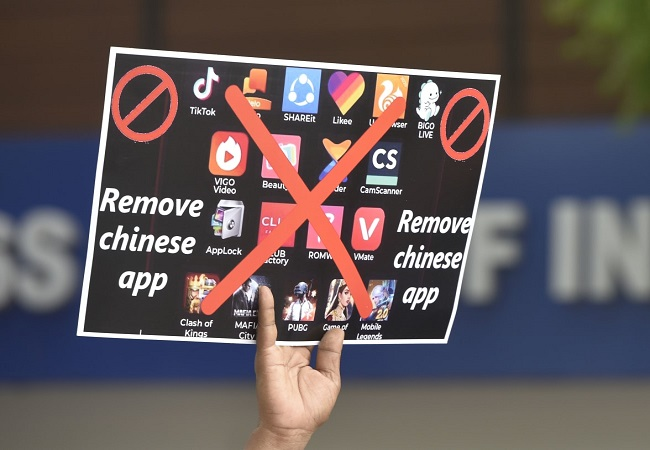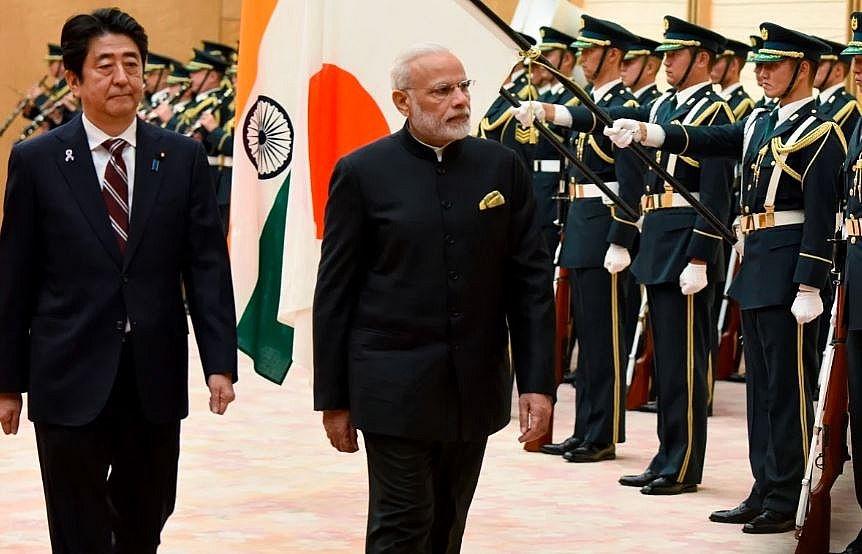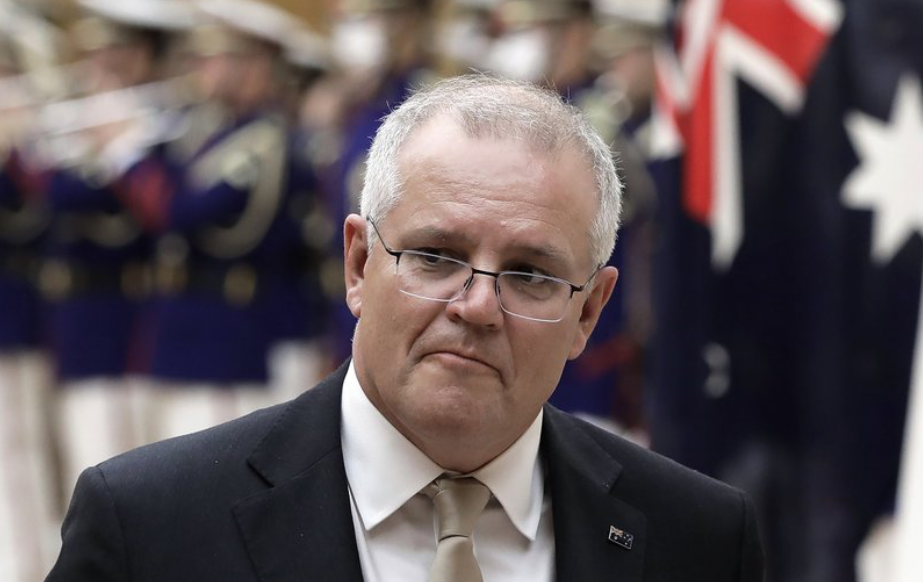India, Japan, Australia to boost supply chain security by reducing dependency on China
 | India, China agree to resolve outstanding issues expeditiously India and China agreed to work towards complete disengagement of troops along the Line of Actual Control (LAC) in the western sector and to expeditiously ... |
 | India bans 47 more Chinese mobile apps, over 250 apps reportedly under scanner The Information and Technology Ministry on Friday banned 47 Chinese apps violating user privacy. India has also prepared a list of more than 250 Chinese ... |
 | India-China tension escalation: India puts a ban on Chinese apps The Indian government has issued a ban on TikTok and dozens of Chinese-made applications, considering it a danger to the country. |
 |
| Japan’s Ministry of Economy, Trade and Industry broached the idea of the Supply Chain Resilience Initiative with the Indian government around a month ago and informal talks have been ongoing. Photo: AFP |
Initiative on launching a trilateral Supply Chain Resilience Initiative (SCRI) to reduce dependency on China
The initiative, first proposed byJapan, is now taking shape, the Economic Times has learnt. Dates are being worked out to hold the first meeting of the commerce and trade ministers of the three countries by next week.
Japan through its Ministry of Economy, Trade and Industry approached India recently and pressed on the urgency to take the initiative forward, according to people in the know. Tokyo was in favor of launching SCRI by November, sources said.
The government is moving on the proposal quite seriously, especially in the light of China’s aggressive moves on the Line of Actual Control in Ladakh. Usually, the sources said, New Delhi would consider any such proposal cautiously as it would be seen as an alliance against China.
This time, the government appears to have taken the call at the highest levels to become part of the global supply chain, thus emerging as an alternative to China.
Plan on Factory Diversification of India, Japan and Australia
According to Business Standard, both India’s and Australia’s trade and diplomatic relations with China are fraying. Prime Minister Narendra Modi’s government restricted some Chinese imports and banned several Chinese apps after a deadly border clash with its neighbor. In Australia, exports like beef, barley and now wine have been targeted by China amid deteriorating ties between the two nations.
The Quad Along with the US, Japan, Australia and India are members of the Quadrilateral Security Dialogue, or Quad, a loose grouping for national security consultation.
Two calls and a text message sent to India’s trade ministry spokesperson during business hours were unanswered.
A spokesman for Australia’s foreign ministry said the nation is working with a range of partners to ensure supply chains are kept open and resilient during the recovery from Covid-19, but did not confirm whether it was working on a deal with Japan and India. There’s no clear agreement between the three nations on any action yet, an official from Japan’s trade ministry said.
Earlier this year Australia and India agreed to work together on diversifying supply chains.
The supply chain initiative could also eventually be expanded to include the 10 members of the Association of Southeast Asian Nations
The South China Morning Post stated that with trade and political tensions simmering between India and China, New Delhi is also keen to step up a supply chain shake-up by rolling out the initiative by the end of the year, added the economists who are close to the matter.
“Yes, the discussion is on and now the plans need to be executed,” said Jagannath Panda, the East Asia coordinator at the Manohar Parrikar Institute for Defence Studies and Analyses in New Delhi.
The initiative is viewed as a direct response to the geopolitical tensions involving China, including the border skirmish between China and India in June which resulted in the deaths of at least 20 Indian soldiers.
But it also has wider implications for the Indo-Pacific region, according to Mark Goh, National University of Singapore Business School professor and director at the Logistics Institute-Asia Pacific.
It would also not only extend the India-Japan Industrial Competitiveness Partnership, which was established in December to help improve India’s industrial competitiveness, but it would open up opportunities for various countries in the Indo-Pacific countries to establish new “China+1” strategies for having backup supply chains outside China, Goh said.
The initiative could also allow India to find a way back into the region’s trade network after it withdrew from the Regional Comprehensive Economic Partnership (RCEP) multilateral trade deal between the members of Asean, Japan, South Korea, New Zealand and China that is due to be signed by the end of the year, Goh said.
Recommended
 World
World
Pakistan NCRC report explores emerging child rights issues
 World
World
"India has right to defend herself against terror," says German Foreign Minister, endorses Op Sindoor
 World
World
‘We stand with India’: Japan, UAE back New Delhi over its global outreach against terror
 World
World
'Action Was Entirely Justifiable': Former US NSA John Bolton Backs India's Right After Pahalgam Attack
 World
World
US, China Conclude Trade Talks with Positive Outcome
 World
World
Nifty, Sensex jumped more than 2% in opening as India-Pakistan tensions ease
 World
World
Easing of US-China Tariffs: Markets React Positively, Experts Remain Cautious
 World
World





